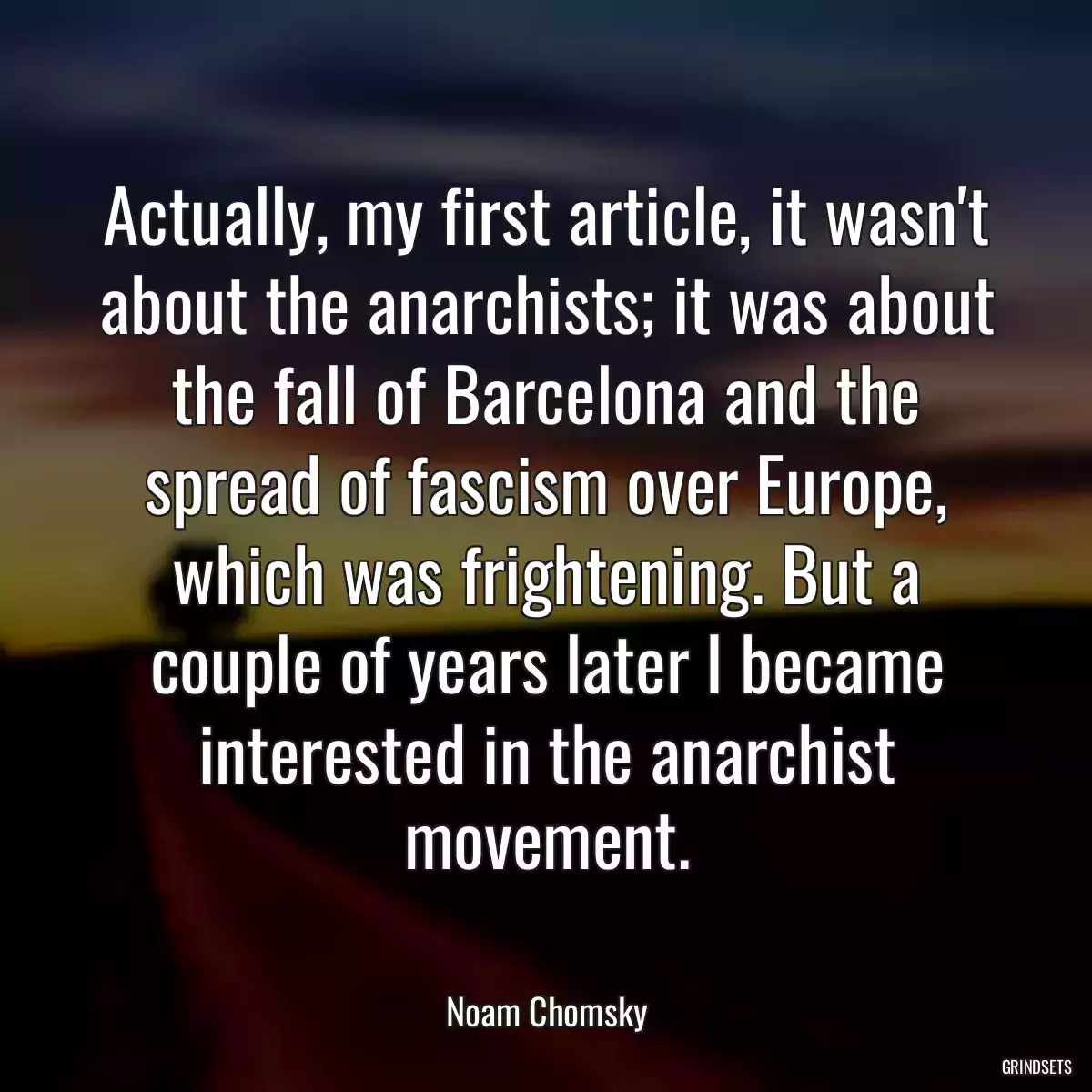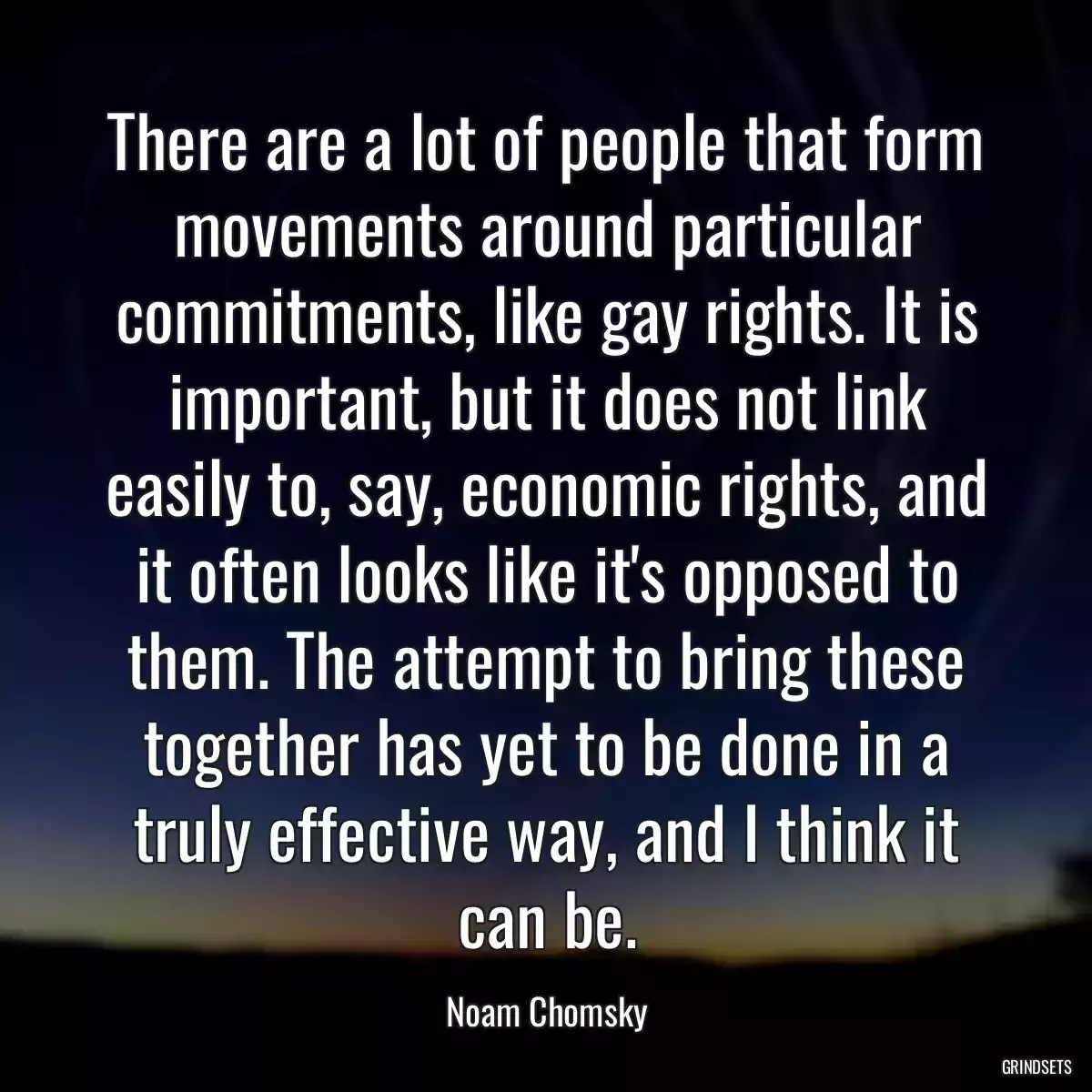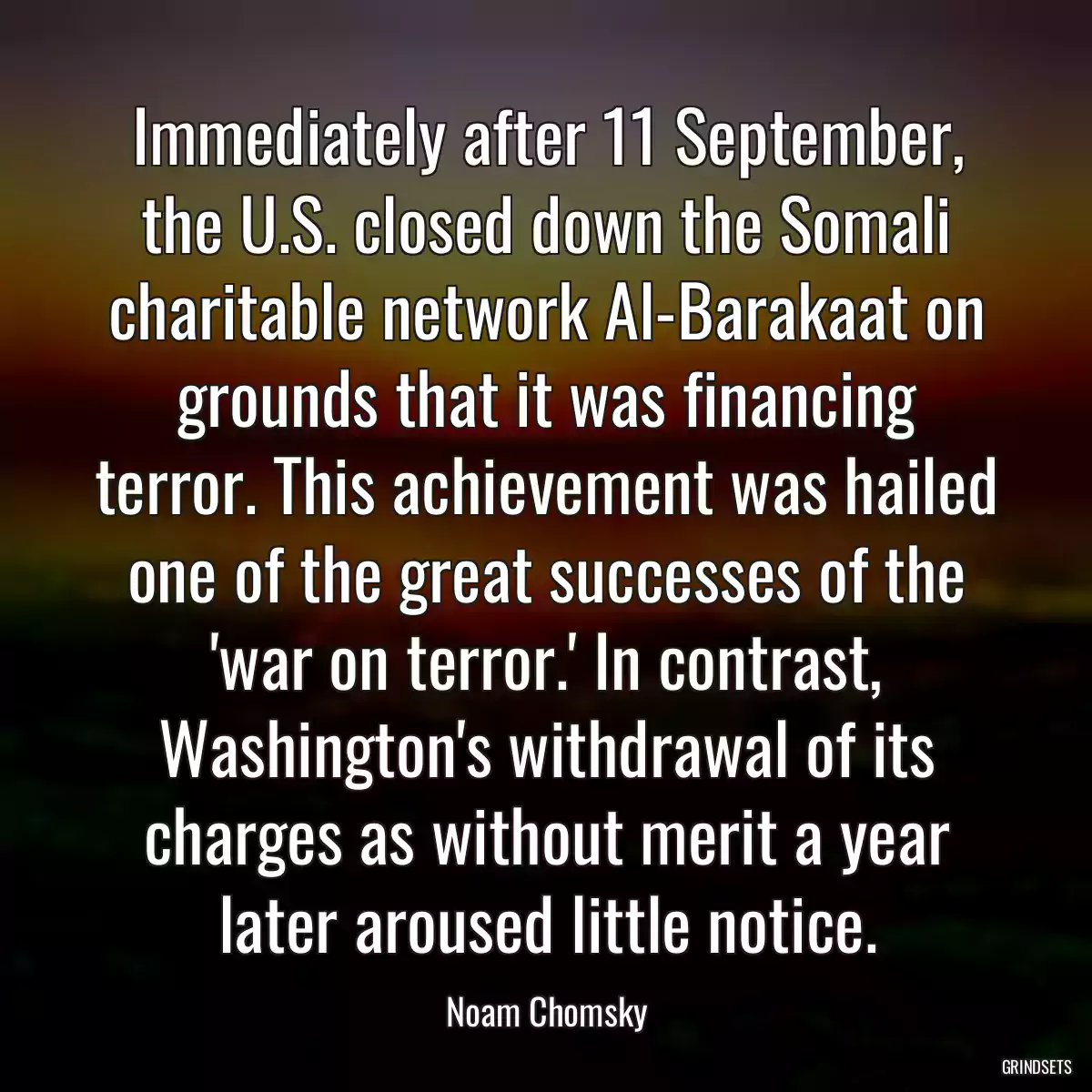
Quotes Noam Chomsky - page 11
Find dozens of Noam Chomsky with images to copy and share.

Trump's principal policies make clear what's going to happen. This gives an opportunity. Right now it's going to take hard work, but it's possible that there could be a real revival of the labor movement.
The labor movement can be rebuilt, as has happened before after sharp declines.
The community itself didn't support the union. Now that's kind of interesting about [Barack] Obama, because Obama was supposedly a community organizer in Chicago at that time. Now I'm sure he read the Chicago Tribune, so he knew about it, but when he went to show his solidarity with the workforce, the first place he went was Caterpillar. I don't think he's forgotten, and the labor movement didn't react. Even radical labor historians didn't remember. It was only 15 years ago, after all, but that's a real triumph of propaganda in many ways.
You may also like
The task for a modern industrial society is to achieve what is now technically realizable, namely, a society which is really based on free voluntary participation of people who produce and create, live their lives freely within institutions they control, and with limited hierarchical structures, possibly none at all
If you look back to the anti-intervention movements, what were they? Let's take the Vietnam War - the biggest crime since the Second World War. You couldn't be opposed to the war for years. The mainstream liberal intellectuals were enthusiastically in support of the war. In Boston, a liberal city where I was, we literally couldn't have a public demonstration without it being violently broken up, with the liberal press applauding, until late 1966.
The [Ronald] Reagan administration picked up the rhetoric of the anti-nuclear movement; they said "Yyeah, you're right." We have to eliminate nuclear weapons.
Occupy was not a movement, it was a tactic. You can't sit forever in a park near Wall Street. You can't do it for more than a few months. It was a tactic I had not predicted. If people asked me, I would have said "don't do it." But it was a great success, an enormous success, with a big impact on people's thinking, on people's actions.
The major organizing centers, like the labor movement, have been severely weakened in the United States by policy.

There are a lot of people that form movements around particular commitments, like gay rights. It is important, but it does not link easily to, say, economic rights, and it often looks like it's opposed to them. The attempt to bring these together has yet to be done in a truly effective way, and I think it can be.
Take, say, the solidarity movement in Central America, which I think is what you probably had in mind. To a large extent, it comes out of mainstream Christianity, based on beliefs that have had outrageous human consequences in the past, and that I think are totally indefensible. In this case, they happen to lead to some of the most courageous, heroic, and honourable human action that's taking place anywhere in the world. Well, that's how life is, I guess. It doesn't come in neat little packages.
Suppose Vietnam could separate itself from the American dominated global system and carry out a successful social and economic development. Then that is very dangerous because then it could be a model to other movements and groups in neighboring countries. And gradually there could be an erosion from within by indigenous forces of American domination of the region.
There has to be spiritual transformation among the masses, who have to be willing to recognize that their oppression is not a law of nature. That's what Latin American bishops were doing when they formed base communities. They were trying to get peasants to recognize that you can take your fate into your own hands. That's what the civil-rights movement did here. That's what the women's movement did.
The 'anti-globalisation movement' is the most significant proponent of globalisation - but in the interests of people, not concentrations of state-private power.
I am not too happy with terms like the left, to be honest. And I don’t use it much….if by the left you mean people who are committed to peace and justice and freedom and so on, there can’t be elements of the left opposed to workers’ movement, at least under that definition.
Anything that you are achieving that undermines and threatens systems of power will meet with oppression. Systems of power don't say 'thank you.' What's important is not to focus all your efforts on the oppression, but to continue the constructive work.
Pick the topic you like: the Middle East, international terrorism, Central America, whatever it is - the picture of the world that's presented to the public has only the remotest relation to reality. The truth of the matter is buried under edifice after edifice of lies upon lies. It's all been a marvelous success from the point of view in deterring the threat of democracy, achieved under conditions of freedom, which is extremely interesting. It's not like a totalitarian state, where it's done by force. These achievements are under conditions of freedom.
The country that consistently ranks among the highest in educational achievement is Finland. A rich country, but education is free. Germany, education is free. France, education is free.
You may also like

Immediately after 11 September, the U.S. closed down the Somali charitable network Al-Barakaat on grounds that it was financing terror. This achievement was hailed one of the great successes of the 'war on terror.' In contrast, Washington's withdrawal of its charges as without merit a year later aroused little notice.
So yes in theory there is a kind of a formal democracy and in many ways these were achievements and an improvement over the feudal system and more advanced than anything else in the world, but nothing that we ought to call democracy.